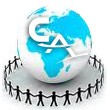
CCI STUDENT....
44687 Points
Joined January 2009
Eventually, everyone in the accounting profession will need to be proficient in IFRS.
Below, learn how the IFRS transition will affect you.
Financial Analysts
Your role in financial statement analysis is critical to the effective functioning of the global markets. Most financial statements will be prepared using IFRS in the future. A working knowledge of these global standards will allow you to make better critical decisions. In addition, this education will give you the competitive edge in this difficult job market.
Public Accountants
Your primary role is to maintain public trust in the financial statements of your clients. Your compilation and audit work will change significantly as IFRS becomes our new standard. The AICPA Code of Professional Conduct Rules 202 and 203 now expect you to be proficient in the works of the International Accounting Standards Board. As a public accountant, you have an obligation to obtain this technical proficiency. Having a proficiency in IFRS will give you a competitive advantage in obtaining new clients and maintaining existing clients.
Auditors
As an internal or external auditor, IFRS significantly changes your work. Until adoption is complete, you will need to audit comparative U.S. GAAP and IFRS financial statements. To do this effectively, you will need to have a strong working knowledge of both U.S. GAAP and IFRS. This educational program is designed to give you that working knowledge so that you, your firm, your clients, and the public can have the greatest confidence in the quality of your work.
CFOs
As the CFO, you are responsible for the financial well being of your organization. Part of your role is to ensure that your organization is in compliance with financial reporting standards. A successful transition to IFRS will require you to educate yourself and your staff in the intricacies of IFRS. The change to IFRS will have an impact on the entire organization. Having a solid education in IFRS will give you credibility with the executive level and with your staff which will allow you to better provide strong leadership through this transition.
Controllers
In a financial reporting environment governed by IFRS, your role as controller will be critical to your accounting staff. They will look to you for guidance on implementation. You'll have to analyze their work critically. Your ability to identify, measure, record, and communicate the economic events of your organization under IFRS requires you have a strong working knowledge of these new standards. Educate yourself and support your staff in their learning of IFRS to ensure that your organization makes the transition to reporting under IFRS effective.
Staff Accountants
The adoption of IFRS, the new global financial reporting language, will change accounting for transactions in your organization significantly. It is critical for you to obtain an education in IFRS beyond the "differences" between U.S. GAAP and IFRS. This education program will give you the knowledge and skills to transition to the new standards seamlessly. You will be able to contribute greatly to your organization by being the expert in IFRS. Set yourself apart and solidify your value to your organization by completing this certificate program in IFRS.
Educators
Since 2006, the International Accounting Standards Board and the U.S. Financial Accounting Standards Board have been working together on joint projects. IFRS and U.S. GAAP are converging and, soon, practitioners will need to know IFRS. The CPA examination will be testing over IFRS after January 1, 2011. You will have the primary role in the education of IFRS. By teaching your students IFRS, you will be giving them the competitive advantage in the workplace. Educate yourself first, educate yourself now.
